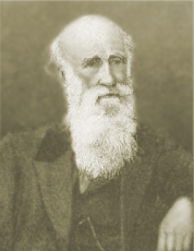“Deregulation of financial services was supposed to have made us all better off, so why did most of us have to live off credit to keep up?” is what Decca Aitkenhead wonders.
According to her President Obama is the only world leader who has attempted a Keynesian stimulus programme. But than he questions “Why has it been only minimally effective? Why do most other western leaders still insist the only way out is to tighten our belts and pay off our debts, when that clearly isn’t working either? And how come the bankers, credit agencies and bond traders are still treated with cowed reverence – don’t frighten the markets! – when they got us into this mess?”

Paul Krugman: ‘These are not hard concepts.’ Photograph: David Levene for the Guardian
Perhaps we should try to find time to read Paul Krugman‘s new book “End this depression now!”
In End This Depression Now! Paul Krugman argues “Nations rich in resources, talent, and knowledge—all the ingredients for prosperity and a decent standard of living for all—remain in a state of intense pain.” Yes we all can see that we could live in such a flourishing world of butter and honey. but we lived in a world were media got people off in dreams which would not be easily be realised, though it was presented as everybody could get it at a finger-snap. And those who did not get all those smart gadgets would be the ‘loosers’, or the ‘noobs’.
Belgium got out the slump and disastrous situations of the two world wars. The Nobel prize-winning economist who writes a column in the New York Times and teaches economics at Princeton University had already written about the Japanese slump in The Return of Depression Economics in 1999.
The Western world could flourish and five years ago hardly anybody thought that our modern civilised nations would be forced to endure bone-crushing recessions for fear of currency speculators; that a major advanced country could be persistently unable to generate enough spending to keep its workers employed; that even the Federal Reserve would worry about its ability to counter a financial market panic. Several people laughed at it when they heard prophetic warnings for a depression similar as in the 1930s.
Reorganisation or restructuring the businesses was the fashion word. The magic word to bring the solution was the Reorganisation, no matter that people would be put on the streets and be made redundant if they were an old play tool that did not satisfy any more. governments wanted to please the CEO‘s and put sand in the eyes of the shareholders, who were promised that the best solution to grow was to buy other factories or banks.
People had to think ‘big’ and had to be assured there was not a danger in expanding but there would be a danger in not expanding.Europeans had to go for the Euro which would bring more unity and would make travelling easier. At last we were released from the exchange of several currencies. Not having to have several currencies in the pocket to go from one end of Europe to the other should have been a blessing.
But did it not go all out of control, beginning with an increase of the prices, while the governments did nothing to call a halt. The content of the packets got smaller but the price kept the same and later increased. Not one government of the European Union thought of taking measures against the factories, businesses and organisations which had found a new growing market, but did not mind to get as much profit as possible no matter were they could find the cheapest employees or labourers.
The market failed to come to a regulation, to keep pace with an increasingly out-of-control financial system which positioned the world for the greatest financial crisis since the 1930s.
For the first time in two generations, failures on the demand side of the economy – insufficient private spending to make use of the available productive capacity – have become the clear and present limitation on prosperity for much of the world.
We can see that the ‘bubble’ was not been seen by economists and policy makers who also weren’t ready for this. The economic market had been growing for some years on the presented dreams by the media and the banks who were eager to get as much money out of the pocket of the saver.
Central banks have repeatedly managed demand – cutting rates to keep spending high – so effectively that a prolonged slump due to insufficient demand became inconceivable. Except in the very short run, then, the only limitation on economic performance was an economy’s ability to produce – that is, the supply-side.
According to Krugman there is an analogy between a household budget and a national economy. When we look around us we do have things to which we can relate. To him in there we could find the solution to our problems.
Paul Krugman says: “We know that advanced economies with stable governments that borrow in their own currency are capable of running up very high levels of debt without crisis. And we know it, actually, best of all from the history of the UK – which spent much of the 20th century, including the 30s, with debt levels much higher than it has now.”
I, just as an ordinary civilian and not an economist, am convinced that we as a capitalist community only can survive if we consume, and therefore there has to be created a climate to be able to consume.
First, according to me, the media should stop to bring such exaggerated negative news, and stop making people afraid to invest or to spend their money. Shares have for a long time not been so cheap. Now is the moment to buy shares and provide cheap money for the industry. By taking care that all the savings are kept in the banks who do not give enough interest, people are making those banks even more powerful, though they are at the heart of a lot of problems. It is because so many are slashing spending they are causing a depression that makes their financial situation even worse.
Secondly the government should make work of being stable themselves and getting as many people back at work, providing the industry with building projects for the whole community. They should have to try to give the people back a ‘feel good’ awareness and a communal sense, and this they have to do by being less greedy but spending more money not on increased wages on members of parliament, but on road and civil works.
Thirdly, the governments should get back regulating the banks, electricity, gas and water, and be in control of the expansion drift of pricing and manufacturing.
In the 1980s politicians were in part persuaded to deregulate by the argument that it would make us all richer. And to this day, “there’s this very widespread belief that there was, in fact, a great acceleration in growth. But this really isn’t hard. You sit down for a minute with the national account statistics, and you see it ain’t so.”
There were early warning signs, such as the savings and loans crisis of the late 80s, that should have alerted politicians to the dangers of financial deregulation, moral hazard and subsequent spiralling debt. But by then Wall Street’s influence over policy-makers had rendered them deaf to alarm bells – in part because bankers were financing so many politicians’ campaigns. Krugman quotes Upton Sinclair’s famous observation: “It’s difficult to get a man to understand something, when his salary depends on his not understanding it” – but more than that, he suspects the sheer glamour of wealthy bankers had a powerful influence over politicians.
Krugman states that only one government is “engaging in unforced austerity because it believed in the confidence fairy: David Cameron’s government in Britain.” However, “business confidence fell to levels not seen since the worst of the crisis and consumer confidence fell even below the levels of 2008-9… Yet Cameron and Osborne remain adamant that they will not change course.” He praises the Bank of England, which continues to do what it can to mitigate the slump.
Krugman looks at whether the economic collapse in Europe would have happened regardless of the US crash, what the causes of the European crisis were and why it came as such a shock. He discusses how long the euro will be seen as a unifying currency when there are such stark differences between the economic situations of countries that have adopted it.
Please do read more about it in:
Paul Krugman: ‘I’m sick of being Cassandra. I’d like to win for once’
Stop worrying and learn to love inflation
+++
Related articles
- Paul Krugman: Reagan Was a Keynesian (economistsview.typepad.com)
Reagan, not Obama, was the big spender. While there was a brief burst of government spending early in the Obama administration — mainly for emergency aid programs like unemployment insurance and food stamps — that burst is long past. Indeed, at this point, government spending is falling … at a rate not seen since the demobilization that followed the Korean War. …
+
Reagan may have preached small government, but in practice he presided over a lot of spending growth — and right now that’s exactly what America needs. - Estonian President Explains His Twitter Tiff With Paul Krugman (politicker.com)
Estonian President Toomas Hendrik Ilves made a series of angry posts on Twitter taking issue with a blog post written by the New York Times’ Paul Krugman criticizing Estonia’s economic performance.
+
Paul Krugman Continues Beef With Republic of Estonia - Paul Krugman: The Austerity Agenda (economistsview.typepad.com)
When the private sector is frantically trying to pay down debt, the public sector should do the opposite, spending when the private sector can’t or won’t. By all means, let’s balance our budget once the economy has recovered — but not now. The boom, not the slump, is the right time for austerity. - Paul Krugman (wnyc.org)
Nobel Prize–winning economist Paul Krugman looks at the economic slump and discusses ways he thinks we can lift ourselves out of it. In End This Depression Now! he argues that a quick, strong recovery is possible if our leaders can find the “intellectual clarity and political will” to restore the economy.
+
HughSansom says: John Kenneth Galbraith, today ignored because he was too progressive for post-Reagan terror tastes, made Krugman’s point 25 years ago. The obsession of the elites is on inflation because inflation is the one thing that can hurt them. They don’t suffer unemployment. They don’t want for anything. But inflation can devalue what We the People owe them.
+Leo from QueensI agree and respect Mr. Krugman’s views and premise on what is wrong with our economy and how to get us out of the depression. But I think he is trivializing the lack of confidence that we the consumers have in government and the financial institutions – Many of these institutions were taken over by organized crime or are being run by irresponsible individuals and nothing has been done to correct it. Many of us who acted responsibly during the bubble and who took a buzz cut or a shave during this depression are hesitant to make any major financial moves (buying a new car, buying a house, investing, opening a business, etc) because we don’t trus the financial sector and that anything has been done to correct the underlying structural problems with government and finance.
- Paul Krugman Demolishes Conservatives At Night, Too (polentical.com)
Paul Krugman was on the British show Newsnight, demolishing two conservative British nitwits like the Hulk smashed through L
oki’s Army.
+
Please note that, when conservatives complain about the state being too large, they are never complaining about having too many subsidies for large companies. They are never complaining about spending too much money on war. Moulton is a good old-fashioned reactionary who thinks it’s a sin to run up debt. This actually opens up an opportunity for Krugman to address the progressive morality of the Depression, which should be addressed far more often. - Paul Krugman, European celebrity (salon.com)
Please note that, when conservatives complain about the state being too large, they are never complaining about having too many subsidies for large companies. They are never complaining about spending too much money on war. Moulton is a good old-fashioned reactionary who thinks it’s a sin to run up debt. This actually opens up an opportunity for Krugman to address the progressive morality of the Depression, which should be addressed far more often. - Paul Krugman attacks Britain’s austerity drive as ‘deeply destructive’ (guardian.co.uk)
He said the UK had now entered a depression with almost 30% of unemployed people having been out of work for 52 weeks or more, compared with 9.5% in 2008.On Europe, Krugman advised the Irish to vote against the fiscal compact, which will involve tighter, EU-imposed budget controls, in a referendum on Thursday. “European currency union was a mistake since the day the Maastricht treaty was signed,” he said. - Paul Krugman versus Kenneth Rogoff on Europe (valuewalk.com)
Kenneth Rogoff and Paul Krugman appeared on the BBC recently, to discuss what can solve the European crisis. The focus of the debate was Spain, the fourth largest economy in the Euro-zone. However, it quickly shifted to Germany, which is considered the strongest country in the Euro-zone.
+
Krugman notes the bubble which built up in Spain over the past 10 years, and the way to get back to being competitive is not by cutting wages. ’Unlimited euros need to flow out of Germany’ to the other countries, and inflation needs to increase. Rising German wages will help Spain become more competitive.
+
Rogoff commented that increasing debt is not the solution, but inflation needs to increase. Germany cannot have an open wallet for these countries, and reform is needed. There are only two ways this can end:1. Europe actually becomes almost like a country, with a central Government or 2. it splits up. If this does not happen soon, the Eurozone will fall apart. - President of Estonia Rips Paul Krugman: ‘Smug, Overbearing and Patronizing’ (newsbusters.org)
After getting trashed by the British Telegraph and schooled by a member of Parliament last month, the Nobel laureate took to attackingthe Republic of Estonia Wednesday only to be slammed in return by its President Toomas Hendrik Ilves via Twitter hours later+
The bankrolling of Southern Europe has already and ever-increasingly threatened the fiscally responsible countries, the ones who have shown solidarity and voted to commit to bailing out those better off than we. Moreover, while much has been made of the change of governments in countries that broke the rules, far too little attention has been paid to what to my mind is a far more significant reverberation: the fall of a responsible, poor, new member state government coalition (in Slovakia) that made the hard choice and voted to support a country richer than it is, all for the sake of European solidarity. - Krugman and Stiglitz: Our Most Widely Ignored Public Intellectuals (economistsview.typepad.com)
Taken together, Stiglitz and Krugman occupy something like the indispensable role that John Maynard Keynes played in the period between 1919 and his death in 1946. Keynes’s sheer intellect and deftness at translating abstruse economics into wry English won him a wide readership. In a time like our own, when austerity was peddled as the cure for depression, his was the voice in the wilderness whose theoretical insights about the need for public outlays to maintain demand kept being vindicated by events. … - President Of Estonia Slams ‘Smug, Overbearing & Patronizing’ Krugman (huffingtonpost.com)
Krugman’s 67-word entry, entitled “Estonian Rhapsody,” questioned the merits of using Estonia as a “poster child for austerity defenders.” He included a chart that, in his words, showed “significant but still incomplete recovery” after a deep economic slump. - Open thread for night owls: Paul Krugman: ‘I’m sick of being Cassandra. I’d like to win for once’ (dailykos.com)
- Krugman: Reagan Was A Keynesian (huffingtonpost.com)
There’s no question that America’s recovery from the financial crisis has been disappointing. In fact, I’ve been arguing that the era since 2007 is best viewed as a “depression,” an extended period of economic weakness and high unemployment that, like the Great Depression of the 1930s, persists despite episodes during which the economy grows. And Republicans are, of course, trying — with considerable success — to turn this dismal state of affairs to their political advantage. - Krugman: Reagan Was More Keynesian Than Obama (tpmdc.talkingpointsmemo.com)
Appearing Sunday on ABC’s “This Week,” the New York Times columnist and Princeton professor argued that Reagan was able to reduce unemployment after taking office in part because he grew government jobs — unlike Obama, who has significantly cut them.“If you actually look at the actual track record of government spending, government employment, Reagan is the Keynesian and Obama — mostly because of political constraints, although a little bit of lack of conviction on the part of his own people — has been the anti-Keynesian,” Krugman said. “He’s been the one who’s been doing what Republicans say is the right answer.” - Krugman: Romney’s business experience wouldn’t help him as president(rawstory.com)
“And it is also totally important to point out, as President Obama just did, what a President needs to do is not what you need to do if you’re trying to make a bunch of money for private equity for investors.”
Krugman, a Keynesian economist, said the United States should be spending more money now rather than trying to slash its budget to make up for lost revenue. The country should reduce the deficit once it had a stable economy.
- Truthfully, the right doesn’t have that much respect for what Reagan actually did(prairieweather.typepad.com)As many economists have pointed out, America is currently suffering from a classic case of debt deflation: all across the economy people are trying to pay down debt by slashing spending, but, in so doing, they are causing a depression that makes their debt problems even worse. This is exactly the situation in which government spending should temporarily rise to offset the slump in private spending and give the private sector time to repair its finances. Yet that’s not happening.

- Reagan, Bush, and Obama: We Are All Still Keynesians (newyorker.com)
The reaction to the May employment report has been depressingly predictable: Republicans have been gleefully proclaiming that President Obama’s fiscal stimulus didn’t work. Many people who commented on my post about the political impact of the job figuresparroted the same line, arguing that the lacklustre economy demonstrates Keynesianism is a bust.+
Whenever the economy falters and private-sector spending declines, they use the tax-and-spending system to inject more demand into the economy. In 1981, Ronald Reagan did precisely this, slashing taxes and increasing defense spending. Between 2001 and 2003, George W. Bush followed the same script, introducing three sets of tax cuts and starting two wars. In February, 2009, Barack Obama introduced his stimulus. The real policy debate isn’t about Keynesianism versus the free market, it is about magnitudes and techniques: How much stimulus is necessary? And how should it be divided between government spending and tax cuts?
+
The Bush Administration’s bailout of the banking industry and the Federal Reserve’s emergency lending programs helped stabilize the financial markets, an essential precondition for a turnaround. The Obama Administration’s bailout of General Motors and Chrysler rescued the auto industry, which is still by far the biggest manufacturing sector in the country.+
figures show Obama wasn’t much of a spendthrift. And he wasn’t even responsible for most of the increase in federal spending that happened on his watch: it came in the form of higher outlays for mandatory programs, such as Social Security, other entitlements, and interest on the national debt. Over the past four years, discretionary spending—the bit of the federal budget that policymakers can control—has increased by just $106 billion, or a little more than ten per cent. That’s an annual rate of increase of about 2.4 per cent. - Brittan on Krugman on Keynesianism (cafehayek.com)
Samuel Brittan writes that “Consumers will not spend because of a backlog of indebtedness and businesses will not invest because of pessimism about market prospects” (“You don’t need to be a lefty to support Krugman,” June 7).
+
government-created impediments and uncertainties that distort the all-important microeconomic details – what the economist Arnold Kling calls “patterns of sustainable specialization and trade” – on which thriving markets depend. Increased government spending of the sort that Messrs Brittan and Krugman advocate will do nothing to remedy these problems.
+
Consuelo Penfold· RCNAny potential entrepreneur isn’t concerned with aggregate consumer spending, or with consumer savings, but with expectations about the near and medium term future of a very specific and tiny slice of a geographically, technically, and conceptually defined market. The childlike one dimensional Keynesian model is based on a simple identity with aggregated past data and offers little insight about the market in question and virtually none about its future.






























 Biblestudents – Bijbelstudenten
Biblestudents – Bijbelstudenten 0 + Bloggers for Peace
0 + Bloggers for Peace Free Christadelphian Ecclesia
Free Christadelphian Ecclesia Hoop tot Leven – Redding in Christus
Hoop tot Leven – Redding in Christus Vrije Broeders in Christus (Free Flemish Christadelphians on Wordpress)
Vrije Broeders in Christus (Free Flemish Christadelphians on Wordpress)















Pingback: Democratic downfall | Marcus' s Space
I love what you say and how you say it.
LikeLike
Pingback: Fear and protection « Christadelphians : Belgian Ecclesia Brussel – Leuven
Pingback: Migrants to the West #8 Welbeing | Marcus' s Space
Pingback: The first question: Why do we live | QuestionTime – Vragenuurtje
Pingback: The first question: Why do we live – Questiontime – Vragenuurtje
Pingback: History.com: This Day In History (January 04-1999): The euro debuts – Some View on the World